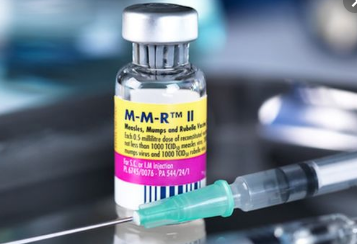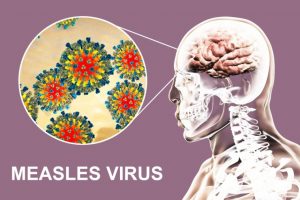Do adults need an MMR booster during this large measles outbreak?

This current 2019 outbreak in the US has us all wondering if we need to get re-vaccinated against the measles. So, do we?
If you don’t have time to go on here’s the gist:
You’re most likely protected for life if you have already had the measles or you were vaccinated with TWO doses after 1968. If not, read on. (Just do that, anyway.)
The measles vaccine became licensed in 1963 and it was later combined with the mumps and rubella vaccines as the MMR vaccine in 1971.
A version of the vaccine used between 1963-1967, however, wasn’t as effective as it is currently. This is when they introduced a killed version of the vaccine instead of the highly effective live (but not infectious) vaccine such as the one we have today.
Health officials suggest that those vaccinated before 1968 should talk to their doctor to see if they need to be re-vaccinated.
Those born before 1957 were exposed to two large measles outbreaks in the US and are most likely protected, however, it wouldn’t hurt to get a simple antibody test to be sure.
In fact, the CDC suggests those born after 1957 and have not had the natural infection of the measles should probably go get two doses of MMR, anyway. (One dose will not be enough for full protection.) Especially if you are planning on traveling overseas, are near a travel hub, or are a healthcare provider.
It costs somewhere around $100 to grab the MMR vaccine depending on the location.
The MMR vaccine is safe and effective (with a 97% protection rate) and has few reported side effects. MMR is the only vaccine available for measles protection as there is no vaccine that contains the measles without mumps and rubella combined with it. It will not hurt you to be vaccinated against all three vaccines even if you’ve contracted the measles/rubella diseases naturally or have already been vaccinated.
The measles highly infectious (with a 90% infection rate) and therefore can easily cause outbreaks. If you leave yourself susceptible you may not only contract the disease but you are able to pass it to many unprotected adults and children including those too young or too sick to be vaccinated.
Not only that but complications from the measles are common in adults. Around 20% of those infected will have mild to severe complications.
The takeaway?
- You don’t need to re-vaccinate if you’ve been vaccinated with two doses of the vaccine after 1968.
- You don’t need to be vaccinated if you’ve already had the measles.
- You are able to get an antibody test to make sure you’re protected if you’re worried about contracting the measles.
- Getting a booster of the vaccine if you’ve already had it (twice) is not necessary, but it’s available and won’t hurt you to do so if you feel so inclined. However, you will pay for it.
Make sure you’re protected. The measles is highly contagious and you don’t want to be responsible for further spread of this deadly disease.
Resources include Healthline, Immunize.org, WebMD, the NHS, and the CDC.


